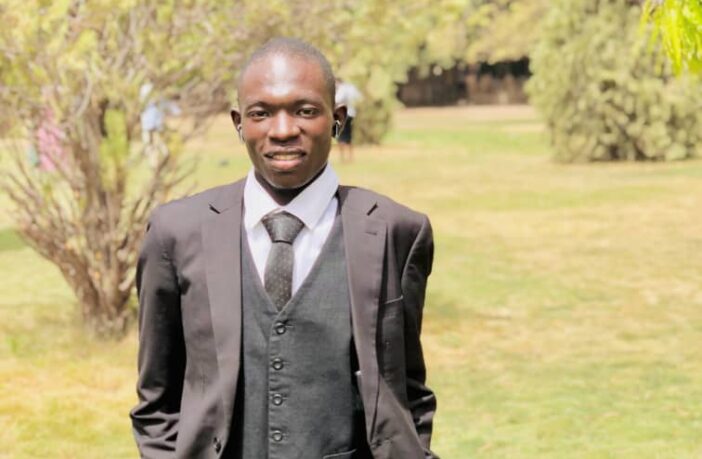By Dunama Muhammad Dunama
1.1 Introduction:It is a well known noticeable jurisprudential shallowness and criticism as against specious and meretricious assertion that legal system however effort is made to harmonize it,and makes it less complex can never be materialized.In a country like Nigeria that has as it most prominent features- multiplicity; pluralism and large number of heterogeneous tribes,languages,traditions, norms,values and aspirations as a result of our historical differences which is also part of our luxurious blessing to be endowed with naturally.
The receive of the English judicial system and it enforcement upon us at the same time using our own indigenous and native system of life has placed Nigeria on a position of having a hybrid legal system,ranging from our constitutional law,personal law,law of succession, etc.All these laws have an aspect of English version of law (common law)governing a particular transaction thereto,as well as indigenous and native laws existing in coagment with a traversal ends.
In respect to age of majority in Nigeria, there are vehement arguments as to the exact legal age of majority currently. Some legal scholars are of the view that our own domestic laws shall prevail ,while some holds in favor of common law principle.
Be that as it may, the enigma is more mysterious when it comes to marriage contracted under Muslim/customary system and the validity of such marriage which has been; is being; or is about to be contracted under any of such system (Muslim/customary).
This paper looks into the traceable and real position of law as premised under the Constitution; Marriage Act LFN 1990; Matrimonial causes Act LFN 2004; Marriages Validity Act LFN 1990; Child Right Act 2007 and some other related statutes currently in force in any part of Nigeria thereof.
1.2 PRELIMINARY: The Constitution of the federal republic of Nigeria 1999 (as amended) provided under section 24 (4) (a) (b) in relation to age of majority in the following terms-
“For the purpose of (1) of this section:
(a) “full age” means the age of eighteen years and above
(b) any woman who is married shall be deemed to be of full age”.
When one read the context of this section carefully,will believe that the age of of majority at which a person can be said to have attained full age and able to have full legal capacity is eighteen years.
Therefore, any person who had not reached the age of eighteen shall be regarded as minor,as such all laws governing transactions entered into or deem to be entered by a minor is applicable here.Additionally, court held over time concerning the age of majority in Nigeria and such position is still applicable herein.
For example in the celebrated case of LABINJOH V ABAKE (1924)5 NLR 33 by the then “full court” now the supreme court of Nigeria held thus:
“Since Infant Relief Act of 1874 was a statute of general application and been an onshore of common law principle hence the age of Nigeria shall be twenty one (21)”
With the development of the international communities’ movement, Nigeria domesticated and ratified Child Right Act at the year of 2003, into our own laws and by virtue of section 21;22; and 23 of the Act it clearly provides in the following terms:
22 “No person under the age of eighteen years is capable of contracting a valid marriage and accordingly a marriage so contracted is null and void and of no effect whatsoever”.
23(1) “No parent ,guardian or any other person shall betroth a child to any person.
(2) A betrothal in contravention of subsection (1)of this section is null and void”.
23 ” A person-
(a) who marries a child ; or
(b) to whom a child is betrothed; or
(c) who betroths a child commits an offence and is liable on conviction to a fine of N 500,000 or imprisonment for a term of five years or to both such fine and imprisonment.”
By all purposes,the age of majority (full age) under this Act has the same meaning as ascribed to it under section 29(4)of the constitution.
Similarly, the child protection law and welfare law of Kaduna State 2018,provide us with the meaning of full age under part one of that law,it stated therein thus:
“Age of majority” mean the age at which a person attains the age of eighteen years subject to the provision of section 24(3) of this law regarding muslim marriage (Emphasis applied).
The combined effect of the laws cited above are not unclear and ambiguous,as it leave us with apparent fact that any marriage contracted with a person below the age of eighteen is void and invalid.That is the general position of the law at same time it has no general application in all matters and on all people.
Because, in the same case of LABINJOH V ABAKE the court held further that age of majority under the customary law is when a person reach puberty,this position is somehow identical with Islamic age of majority even though they have some minor dissimilarities, under Islamic law age is not even a necessary requirement before a valid marriage can be knotted.
This is in pari materia with the practice of our beloved noble prophet (p.b.u.h)who was reported to married one of his wives (Nana Aisha)before she attained the age of 14 years.In the same being,Constitution provided that any woman who is married shall be deemed to be of full age -one shall not contradict this position of the law with a presumption of law and this is because it is not, and therefore the section shall be given a literal interpretation in order to marry it with sole intendment of the lawmakers having in mind the effect of section 10,38,175 and 180 of the same constitution.
Jointly, it’s also provided under section five(5)of the Marriage Validation Act Cap 219 laws of the Federation of Nigeria 1990 in the following terms:
“Nothing in this Act shall-
(a) apply to any Muslim marriage or customary law marriage” (emphasis applied)
On same parlance ,it is also enshrined under section 35 of the Marriage Act CAP 218 Law of The Federation of Nigeria 1990 thus:
“……Nothing in this Act contained shall affect the validity of any marriage contracted under or in accordance with any customary law ,or in any manner apply to marriages so contracted”.
More so, Kaduna state child protection and welfare law of 2018 is in pari-pasu with the aforementioned laws, as it provides under section 24(3) thus:
” Notwithstanding the provision of this subsection (1)and (2) of this section, a child who is a Muslim who has not attained the age of 18 years shall have the right to contract a marriage under Islamic law ,and the marriage so contracted shall be valid.Provided that, the child is 14years or above.”
That is so,because marriage and any matter thereto been a component of personal law to those persons concerned shall be govern only by such personal law (s) applicable at the material time to the parties thereat,the basis of this rationale was not overlooked by our court as the court held again in the case of LABINJOH V ABAKE similarly thus:
“…that matters of personal law shall be governed by custom of the parties in action if they so desired”
It shall be reiterated at this crucial point that,the absence of legal fallacy and the presence of legal coagment reinforces and presupposes the fact that our laws take cognizance of our religious/customary system of marriage and hence no marriage which had been; has been; is being; or will be contracted under either customary or Islamic system shall by any reason whatsoever be declared invalid, void or made ineffective by any court of law,when such declaration depends only on the level of age of the person (s) married.
CONCLUSION: Even though age is a legal requirements and one of the prerequisite factors in establishing a contractual agreements enforceable in eye of the law with a child and a relevant yardstick on gauging how a child should be treated, i.e a child shall not be compelled to do something out of his own volition unless otherwise it is for the best interest and benefit of that child, but still the scenario is not the same in respect of marriage contract under Islamic/Customary system.
Therefore, whenever marriage is contracted under marriage Act of 1990,then the age of majority becomes a question of law contradiction of which attract penalty.
Equally, that is not the position in relation to Muslim/customary marriage as provided under our extant laws.
In lieu of the luminous authorities set on the concerned topic,it’s misnomer, inordinate, inappropriate and unreasonable for some of our families, friends,relatives, communities, and government and its officials who were unfortunately brainwashed by the western civilization to be chastising our native system of marriage without looking at its legal,social,political, and economic significance.
Dunama Muhammad Dunama is 300 level Law Student at Ahmadu Bello University, Zaria. He writes from Zaria and can be reached through 0705 060 8359.




